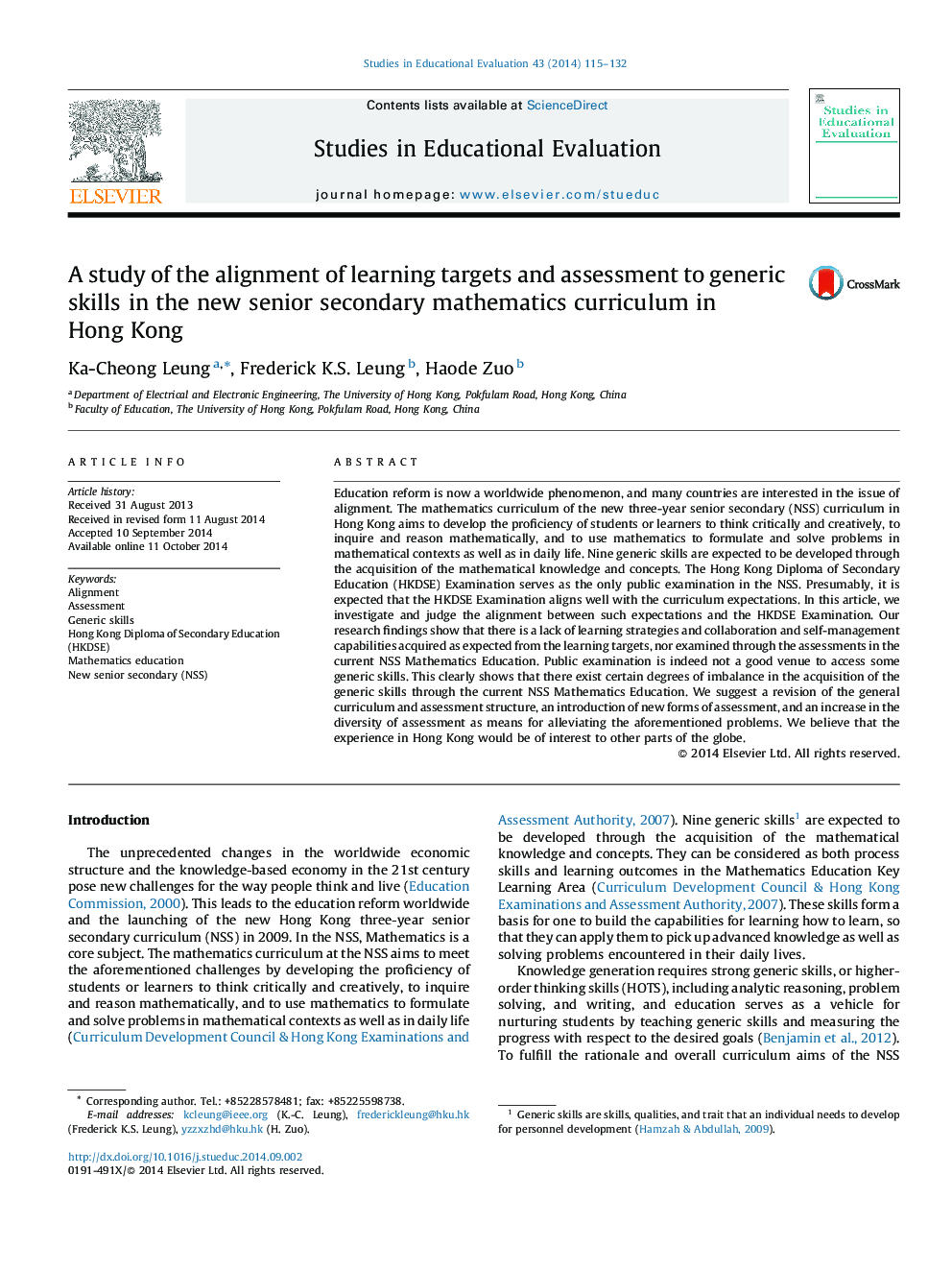| Article ID | Journal | Published Year | Pages | File Type |
|---|---|---|---|---|
| 6849195 | Studies in Educational Evaluation | 2014 | 18 Pages |
Abstract
Education reform is now a worldwide phenomenon, and many countries are interested in the issue of alignment. The mathematics curriculum of the new three-year senior secondary (NSS) curriculum in Hong Kong aims to develop the proficiency of students or learners to think critically and creatively, to inquire and reason mathematically, and to use mathematics to formulate and solve problems in mathematical contexts as well as in daily life. Nine generic skills are expected to be developed through the acquisition of the mathematical knowledge and concepts. The Hong Kong Diploma of Secondary Education (HKDSE) Examination serves as the only public examination in the NSS. Presumably, it is expected that the HKDSE Examination aligns well with the curriculum expectations. In this article, we investigate and judge the alignment between such expectations and the HKDSE Examination. Our research findings show that there is a lack of learning strategies and collaboration and self-management capabilities acquired as expected from the learning targets, nor examined through the assessments in the current NSS Mathematics Education. Public examination is indeed not a good venue to access some generic skills. This clearly shows that there exist certain degrees of imbalance in the acquisition of the generic skills through the current NSS Mathematics Education. We suggest a revision of the general curriculum and assessment structure, an introduction of new forms of assessment, and an increase in the diversity of assessment as means for alleviating the aforementioned problems. We believe that the experience in Hong Kong would be of interest to other parts of the globe.
Related Topics
Social Sciences and Humanities
Social Sciences
Education
Authors
Ka-Cheong Leung, Frederick K.S. Leung, Haode Zuo,
